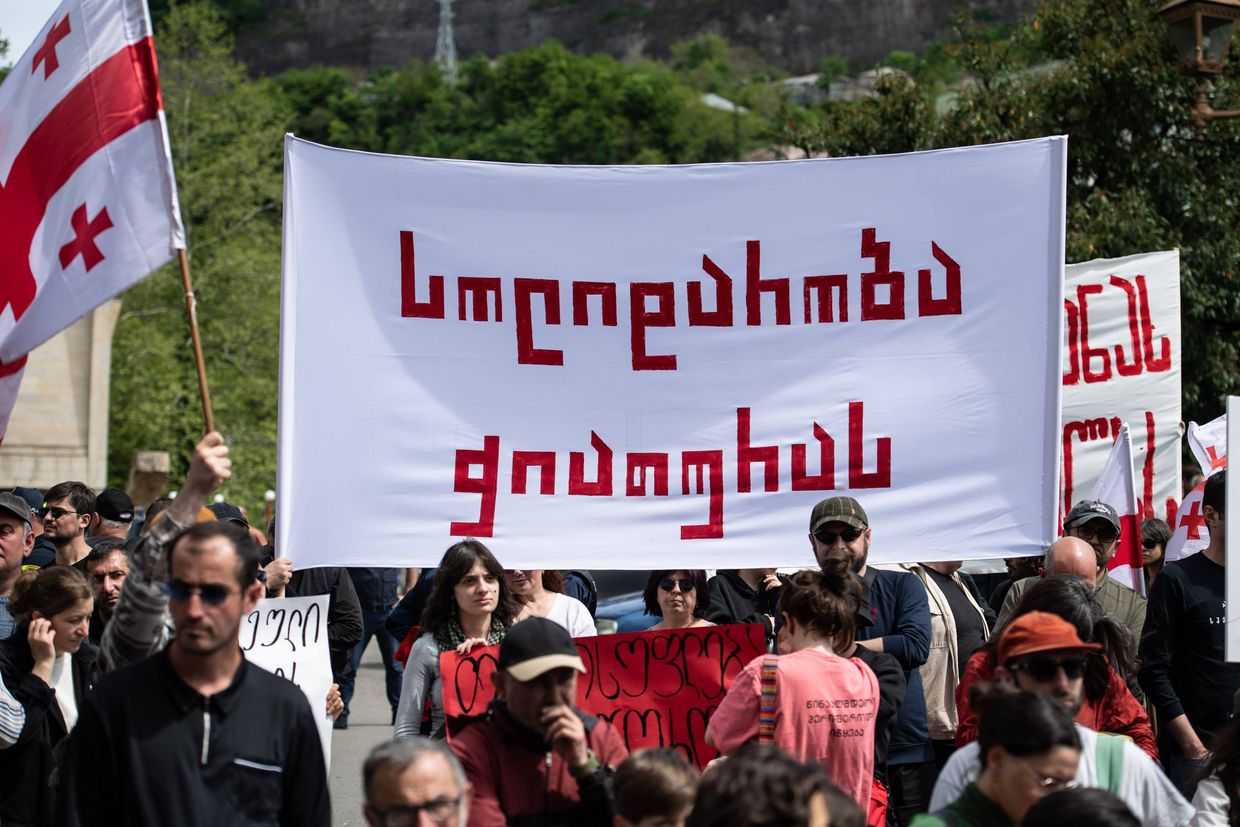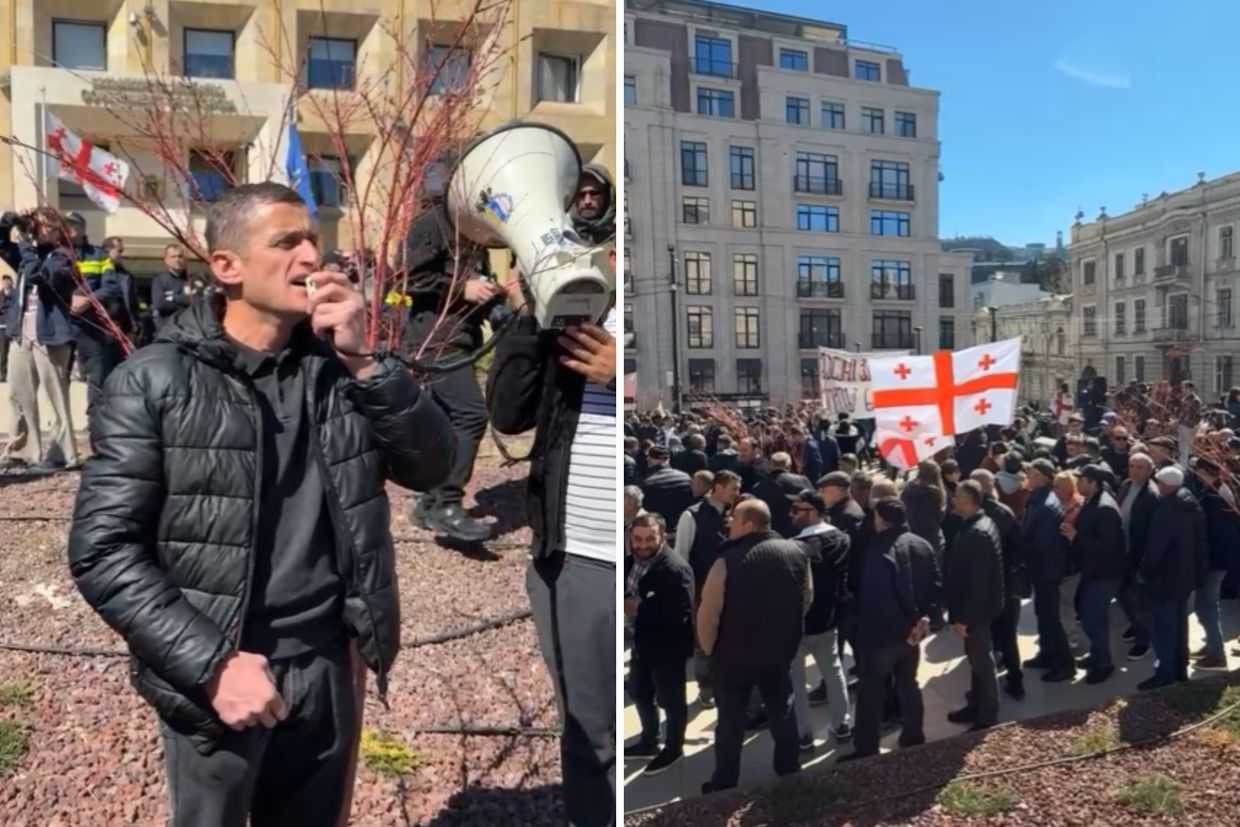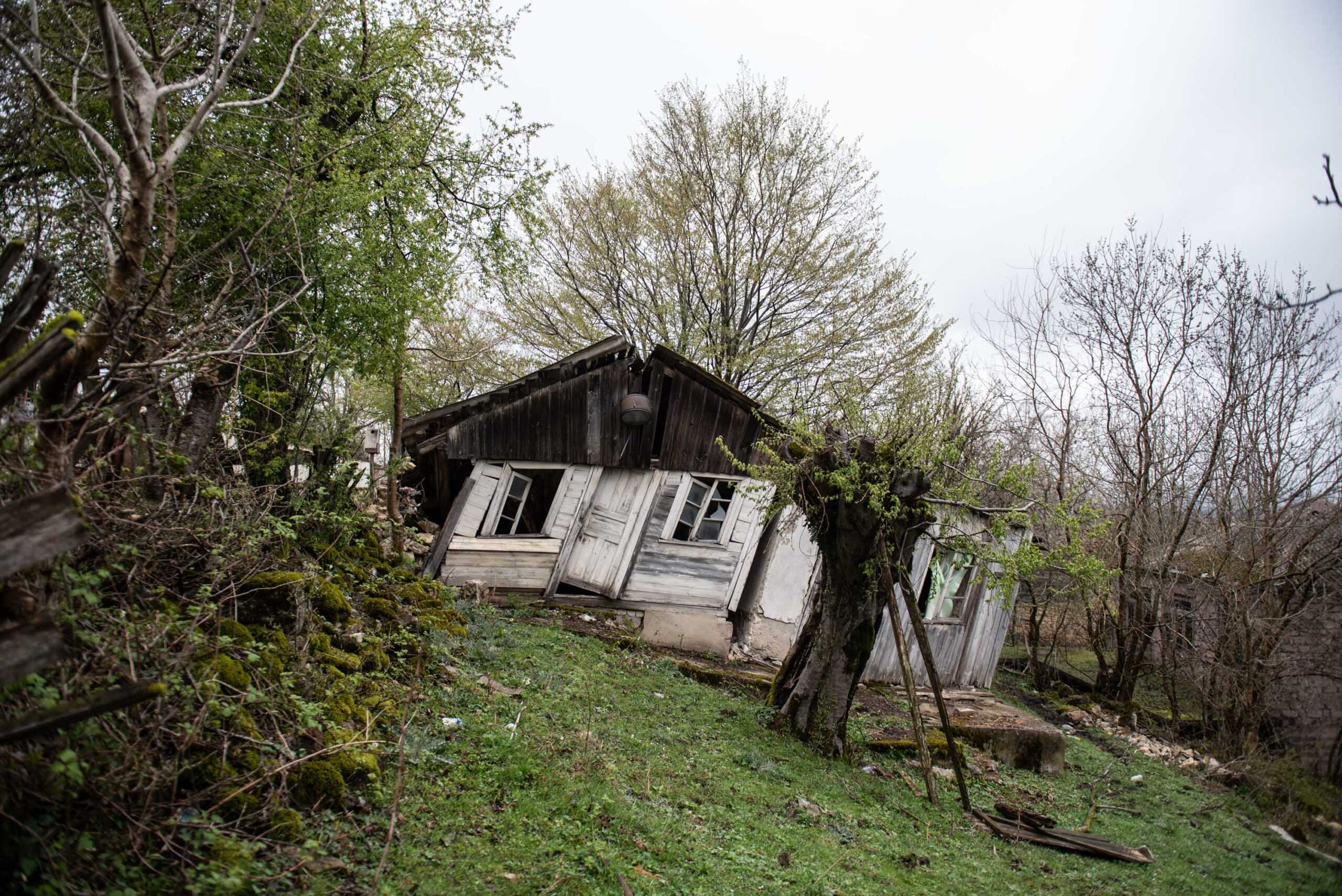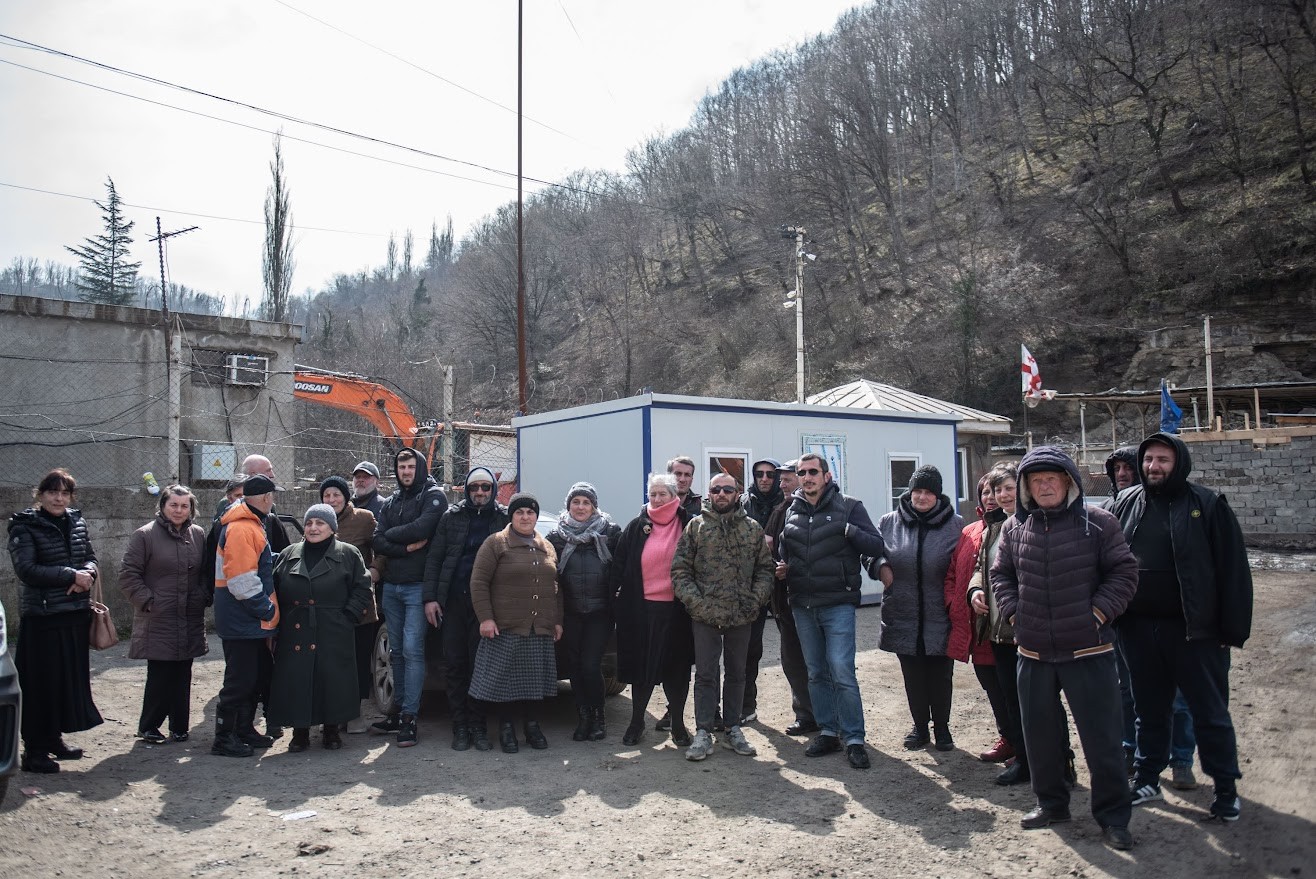
Residents of a village near the Georgian mining town of Chiatura have blocked access to a mine running under their village, to demand adequate compensation for the destruction of their village.
Residents of Shukruti, in western Georgia, set up a tent outside the mine entrance on Wednesday, the latest in a series of protests against mining company Georgian Manganese.
The land in and around Shukruti began to collapse in 2019, with Georgian Manganese initially denying any connection to the mines running beneath.
Protests by residents of Shukruti culminated in a 30-day hunger strike in 2021, during which several residents sewed their lips shut to demand compensation for the damage to their homes.
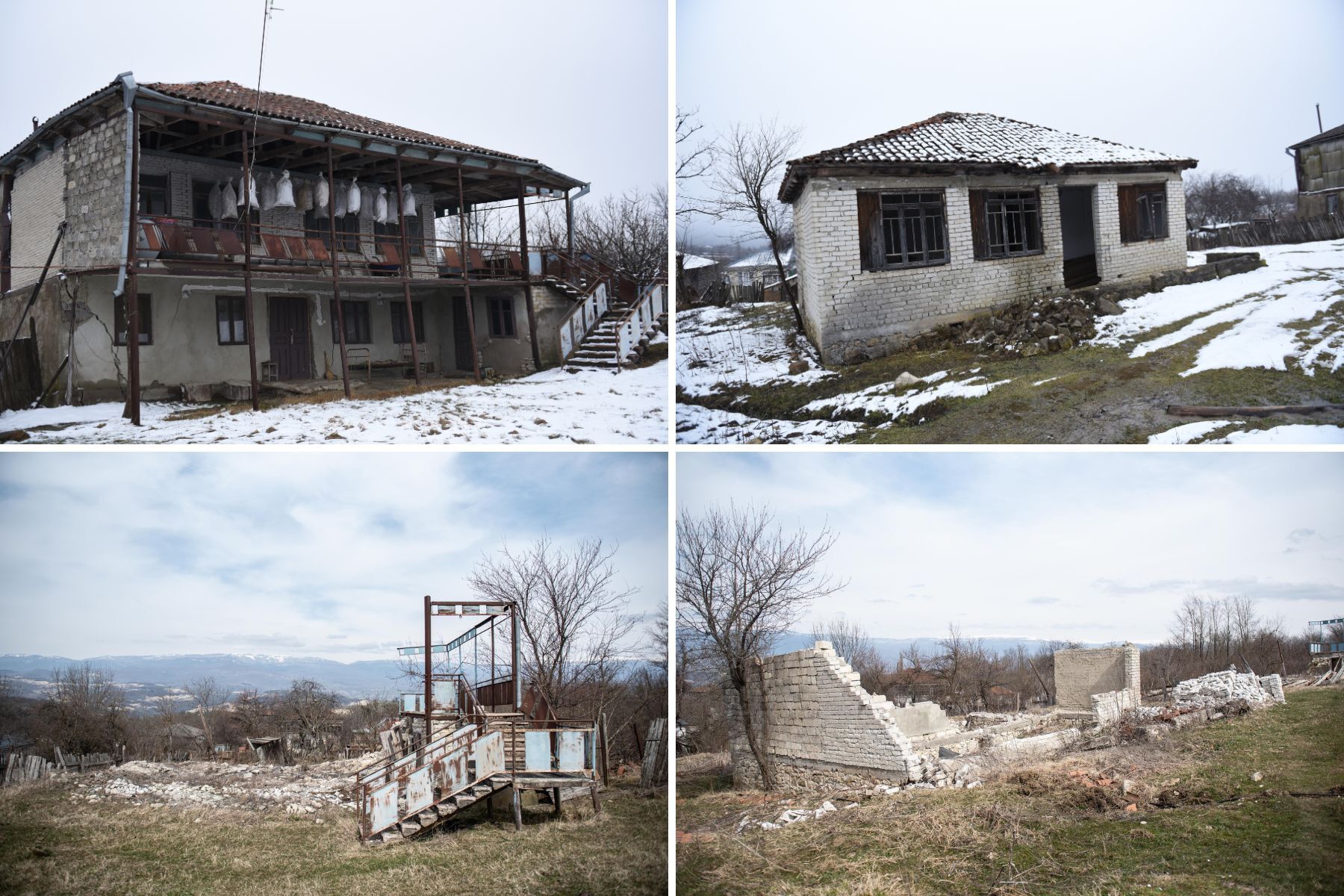
[Read more: In pictures | Lips sewn shut in Chiatura’s sinking village]
While Georgian Manganese struck a deal with the residents to end their protest in June 2021, residents of Shukruti now say the company has not delivered on its promise to fully compensate them.
Giorgi Bitsadze, one of the residents protesting in front of the mine in Shukruti, told OC Media on Thursday that Georgian Manganese had compensated the residents with ‘measly sums’ of money.
Another protester, Jumberi, told OC Media that the company had agreed in 2021 to compensate some residents only for damage to their houses, not the total value nor for their relocation. Since then, he said, the houses had continued to collapse.
‘Now there is such a situation here that there will be nothing left at all’, he said.
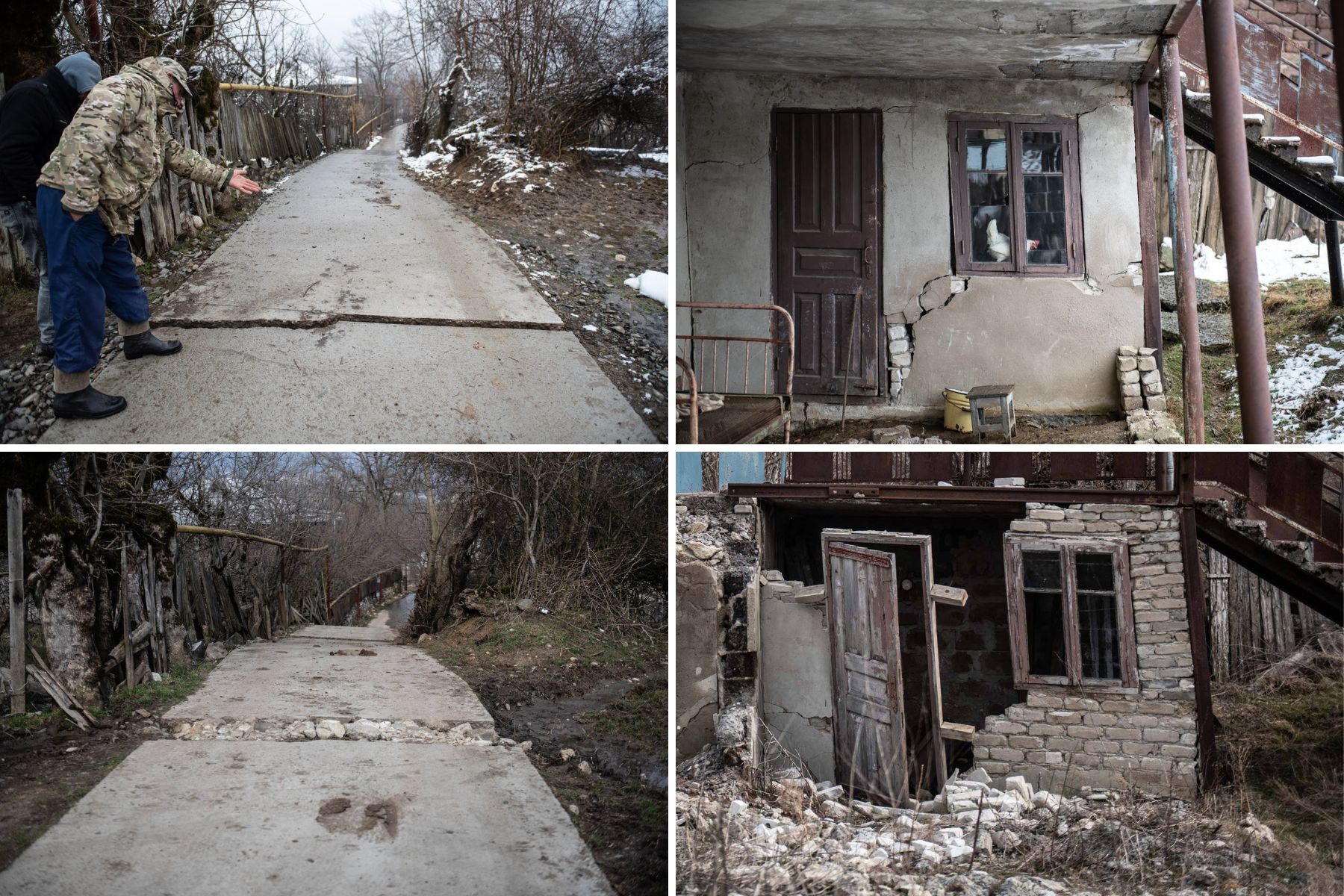
The protesters also demand that experts assess whether Shukruti and its buildings were habitable and safe after years of intensive manganese mining under the village.
‘[We don’t know] when the foundations will collapse […] All rain and snow is dangerous for us’, said Asmat Neparidze, another protester.
Jumberi said that the recent deadly landslide in Shovi had caused people to worry that the same could happen in the nearby village of Itkhvisi, claiming that Georgian Manganese had shut down several mines in response to the tragedy.
[Listen to the Caucasus Digest: Podcast | Shovi: an avoidable tragedy?]
In 2022, around 20 houses collapsed and many other buildings were damaged in Itkhvisi. Many in Itkhvisi have refused to leave their homes, despite a government audit warning that over 100 houses had become too dangerous to live in.
[Read more: A Georgian village falls through the cracks]
Georgian Manganese acquired a 40-year mining license to operate a mine under Shukruti in 2006.
‘We became refugees in our country’
On Wednesday, Georgian Manganese claimed to have fully compensated the residents of Shukruti, dismissing those protesting as a ‘radical group […] trying to mislead the public’.
‘The radical group, which makes demands to the company, has already received compensation. Funds were gradually disbursed in different years according to the individual private property assessment’, read the company’s statement.
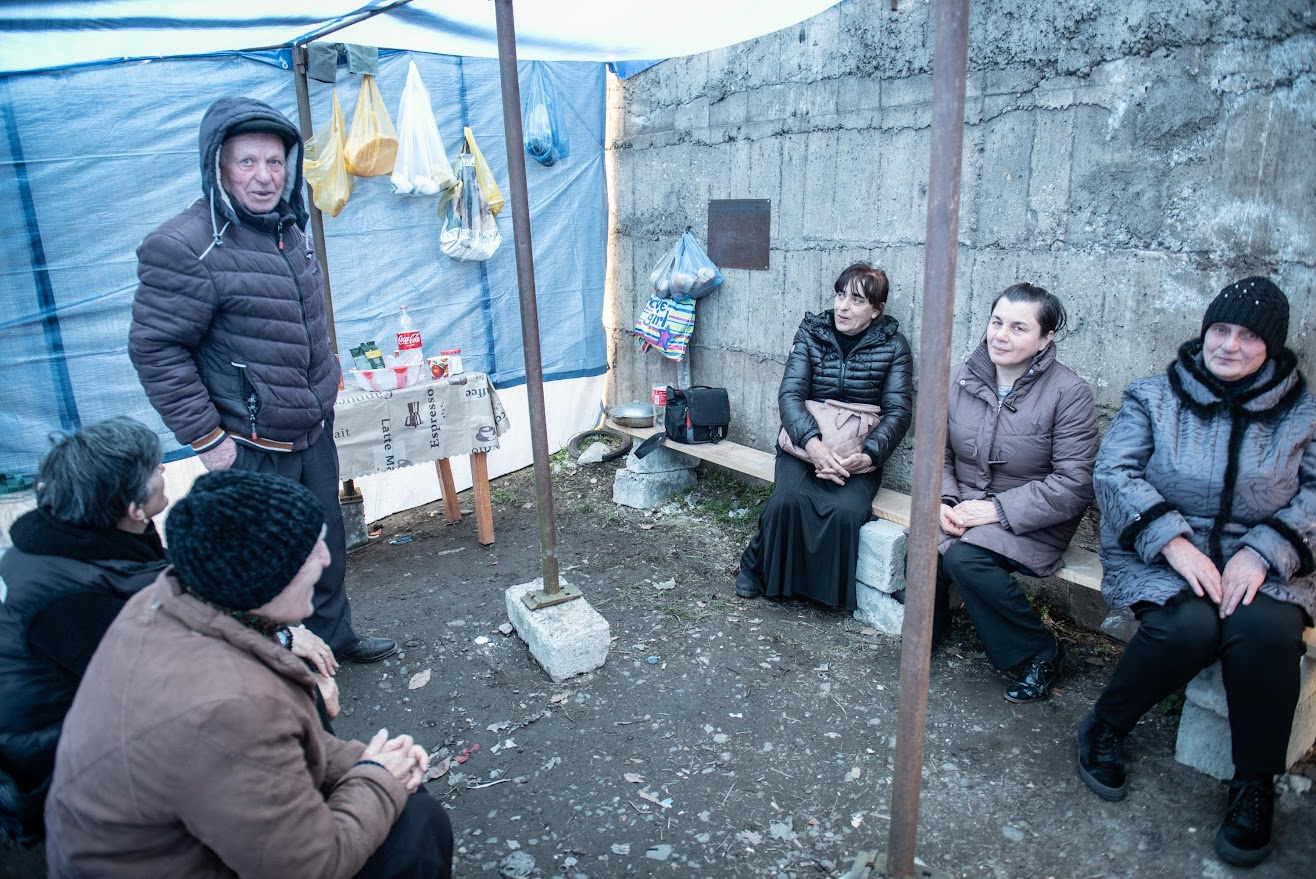
Georgian Manganese stated that it had disbursed a total of ₾11 million ($4 million) as compensation to the residents of Shukruti and the nearby village of Perevisa.
They said that while a global slump in manganese prices had ‘temporarily delayed’ the process of issuing compensation, they had resumed the payouts earlier in March.
However, many of those who have received compensation say the company was underpaying even on what they had previously promised.
Despite receiving compensation, Shukruti resident Giorgi Bitsadze told OC Media that Georgian Manganese had deducted ₾5,000–₾10,000 ($1,900–$3,800) from some of the residents’ total promised compensation.
Bitsadze also said that Georgian Manganese had forced residents to write ‘certificates of appreciation’ upon receiving compensation from the company. He claimed that the certificate did not list the financial sums provided as compensation for their damaged properties, but rather as ‘financial assistance’ from Georgian Manganese to the community.
‘We need to sign an agreement’, he said. ‘Of course, all this should be raised to the national level, so that tomorrow, when our houses are destroyed, we will not be left up in the air’.
Ghentor Gaprindashvili, a lawyer from Shukruti, told OC Media that an audit by the National Forensics Bureau revealed that Georgian Manganese had greatly undervalued his property’s worth — by around 55%.
The Bureau also estimated the value of his crops to be worth ₾72,000 ($27,000), while Georgian Manganese appraised them to be worth only around ₾18,000 ($6,700).
Others in Shukruti have also warned that the constant mining under the village has contributed to polluting their crops.
The protesters claimed that Georgian Manganese had yet to open talks with the protesters in Shukruti as of Friday.
On Friday, Georgian Manganese told OC Media that prior to operating mines in communities, they conduct negotiations with residents to assess the value of their property and agree to offer them compensation for potential damages mining activity would incur on their homes.
Residents of Shukruti deny this, claiming that the company frequently does not even warn local residents when launching new mining activities.
Georgian Manganese also denied requiring Shukruti’s residents to submit ‘notes of appreciation’ upon receiving compensation for their damaged properties.
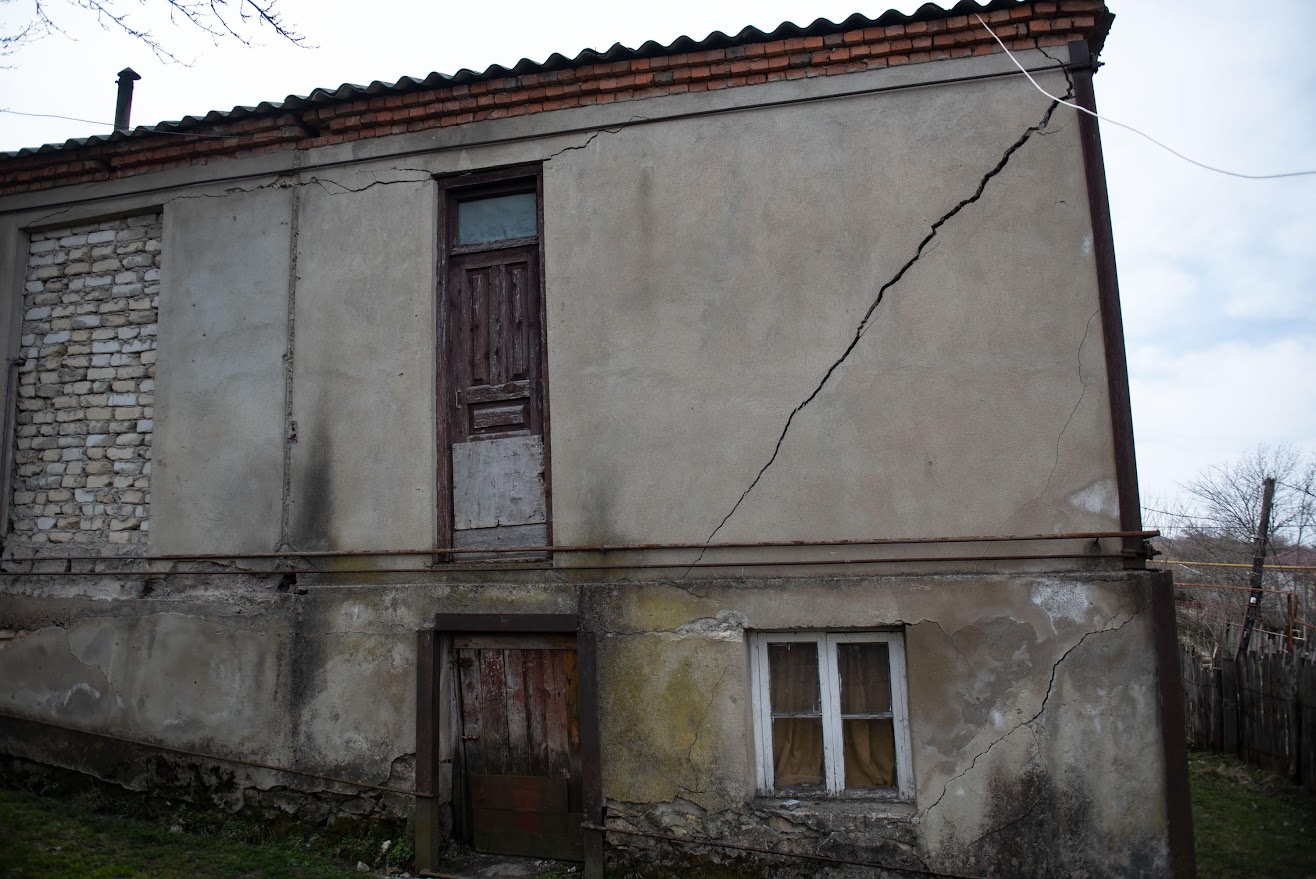
However, Bitsadze, told OC Media that new cracks continue to appear on the walls of their homes as they await compensation from Georgian Manganese.
‘We have become refugees in our country’, he said.

